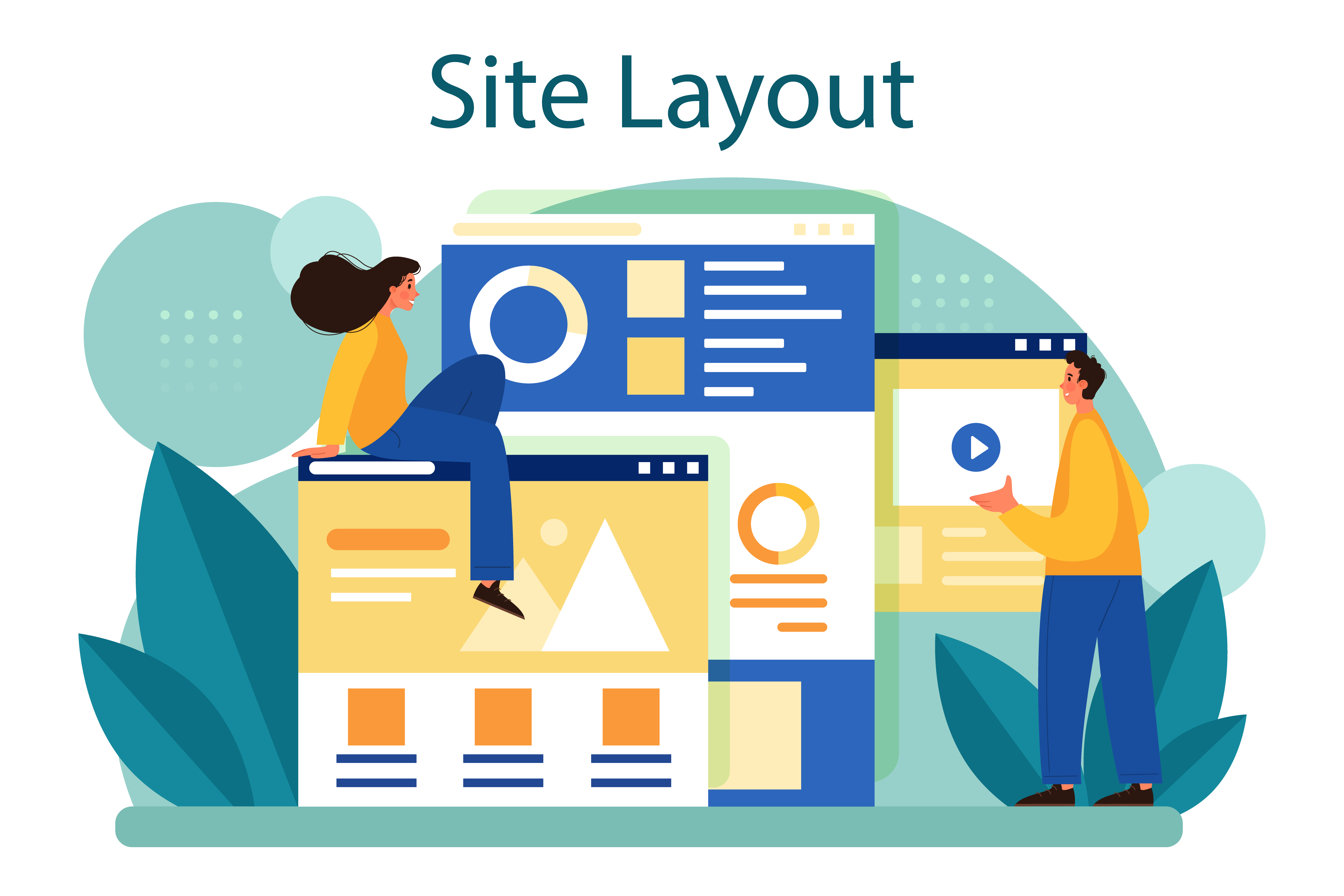Recent Posts

October 12, 2022 / Business / Design
Why Websites Are Essential for Businesses in the Digital Age
A website is an important part of any business. It doesn't matter what industry you're in, from restaurants to law firms, everyone needs a website. In this digital age, having a website is essential for success...
Read More

December 3, 2022 / Business / Design
A Checklist of Must-Have Features for your Website
You've decided to create a website for your business—congratulations! It's a big step, and there's a lot of work to be done. But don't worry, we're here to help. Below is a checklist of features that every website should have...
Read More

December 5, 2022 / Website / Coding
Why You Should Choose Custom Websites Over CMSs.
You've probably heard of Content Management Systems like WordPress. They're popular for a reason: they make it easy to create & manage websites. But there are a few reasons why Custom Websites are better...
Read More
Why Websites Are Essential for Businesses in the Digital Age
December 1, 2022 / Websites / Business development

Introduction:
A website is an important part of any business. It doesn't matter what industry you're in, from restaurants to law firms, everyone needs a website. In this digital age, having a website is essential for success. There are a lot of reasons why a website is important for businesses. Here are just a few:- A website is the perfect way to showcase your business to the world. It's a place where customers can learn about your products and services, and it's also a great place to share your story.
- A website can also help you build credibility and trust with your customers.
- A website is also a great way to connect with customers and keep them updated on what's going on with your business. You can use your website to share news, promotions, and special events. And, if you have a blog, you can use it to share your thoughts and ideas with your customers.
- A website is an essential part of any business in the digital age. If you don't have one, you're missing out on a lot of potential customers.
Benefits of Having a Website for Your Business:
There's no question that in the digital age, a website is essential for any business. It's your online home base, where potential customers can learn about your company, what you do, and how to get in touch with you. A well-designed website can also help you generate leads and sales, as well as build brand awareness. And if you're not sure where to start, don't worry there are plenty of resources available to help you create a website that represents your business in the best possible light. So don't wait any longer, get started on your website today and see the benefits for yourself! Contact Shobowale Olanrewaju for your website.How to Build an Effective Website:
When it comes to your business, you want to make sure that you're doing everything you can to put your best foot forward. And one of the most important things you can do is have a website. Think about it: when someone is looking for a business like yours, the first thing they're going to do is go online and do a search. If you don't have a website, then you're not going to appear in those results. But even if you do have a website, it's not going to be effective unless it's well-built. So how do you go about building an effective website? Here are a few tips:- Make sure your website is responsive. That means it looks good and functions well on any device, from desktop computers to mobile phones.
- Keep your design simple and easy to navigate. No one wants to spend time clicking through links trying to find what they're looking for.
- Make sure your content is up-to-date and relevant. Nothing looks worse than a website with outdated information.
- Use clear, concise language that is easy to understand. You don't want people scratching their heads trying to figure out what you're saying.
- Make sure your site is secure. This is especially important if you're taking payments or collecting personal information from your visitors.
The Advantages of E-Commerce Websites:
A website is one of the most important investments a business can make in the digital age. It gives you a 24/7 presence and allows you to reach a global audience. But that's just the beginning. Here are some of the other advantages of having an e-commerce website:- Increased visibility and online presence: A website is your digital storefront, and it gives customers a convenient way to learn more about your products and services.
- Greater customer reach: With a website, you can reach customers anywhere in the world who have access to the internet.
- Improved customer service: Websites allow customers to search for information on their own, so they can get the answers they need without having to contact customer service. This saves you time and money, and it helps customers get the information they need quickly and easily.
- Increased sales: A website provides an easy way for customers to buy your products and services online, 24 hours a day, seven days a week.
- Better branding: A well-designed website that reflects your company's brand will help you stand out from the competition.

The Importance of a Mobile-Friendly Website:
As we enter into the digital age, having a website that is mobile-friendly is more important than ever. After all, millions of people use their phones as their primary source of internet access. You don't want your business to miss out on potential customers because they can't access your website on their mobile device. Mobile-friendly websites are designed with mobile users in mind and load quickly and easily on mobile devices. They are also optimized for the size of a phone or tablet screen, which means the user experience is better since everything looks and works the way it should. Plus, Google has recently decided to give priority to websites that are optimized for mobile devices. Bottom line: if you want your business to reach its full potential and stay competitive in this rapidly changing digital landscape, you need a website that is mobile-friendly and operates at peak performance.Strategies for Gaining Website Traffic:
A website is no good unless there are people visiting it. It is important to come up with strategies to get your website noticed and draw more traffic to it. Here are some tricks you can use:- SEO (search engine optimization): This involves using key words and phrases in your website content so search engines can easily identify it when someone searches for information related to your business.
- Social media: Use social media platforms like Facebook, Twitter, and Instagram to promote your website and create a larger online presence for your business.
- Paid advertisements: You can pay for ads on search engines or social media networks that will appear higher up in the list of relevant results when a person searches for something related to your business.
- Blogging: Write regular blog posts that offer useful insights into your industry and link them back to specific pages on your website. This will help you gain more organic traffic from people who have read the blog post.
These are just a few strategies you can use to ensure that more people see your website and become aware of what services or products you provide. The more traffic you can generate, the better off your business will be!
Tips for Creating Engaging Content for Your Website:
Creating content for your website is a great way to engage with your audience and make them stay on your website. But how do you create content that will keep your audience hooked? Here are a few tips:- Make sure it is useful: Make sure the content you create provides value to your readers. This could mean giving advice or offering helpful resources.
- Keep it simple: Keep the language simple and easy to understand so that readers can focus on the topic. For example, if you’re writing about the benefits of having a website for your business, explain it in layman's terms.
- Include visuals: Visuals can help break up content and make it more appealing to readers. Consider using videos, infographics, images, or other visuals in order to keep readers engaged with the content.
- Focus on storytelling: Storytelling is a great way to communicate and connect with readers. Use stories from clients or employees as examples, or use stories from industry leaders as inspiration. This will help keep the content interesting and engaging.
Conclusion:
The bottom line is that websites are absolutely essential for businesses in the digital age. If you don't have a website, you're missing out on a huge opportunity to reach new customers and grow your business. And if you have a website but it's not optimized for search engines or mobile devices, you're also missing out. Investing in a professionally designed website is one of the best things you can do for your business. It will help you reach new customers, make sales and grow your business. So what are you waiting for? Get started today! Contact Shobowale Olanrewaju, I will help you build your websites with consideration of the features stated above.Posted by: Olanrewaju
Categories:
Share:

Shobowale Lanre
Web Developer
RECENT POSTS
- A Checklist of Must-Have Features for your Website
- Why Websites Are Essential for Businesses in the Digital Age
- Blog Home Page
COMING SOON!
A Checklist of Must-Have Features for your Website
December 3, 2022 / Business / Design

Introduction
You've decided to create a website for your business—congratulations! It's a big step, and there's a lot of work to be done. But don't worry, we're here to help. Below is a checklist of features that every website should have. ticking off these features will ensure that you have an outstanding website that will help you reach your business goals.1. Mobile-Friendly Build
When it comes to creating a website, you want to make sure that it looks great and functions well on all devices. In other words, you need to build a responsive layout. This means that the website will adjust to the size of the screen it's being viewed on—whether it's being looked at on a desktop computer, a tablet or a phone. Not only is this important from a usability standpoint, but it's also essential for SEO. Google has been penalizing websites that aren't mobile-friendly since April 2015, so if your website isn't responsive, you're going to be at a disadvantage in the search engines.2. Optimize Website Speed
In addition to making sure your website is responsive, you also want to make sure that it loads quickly. Nobody likes waiting for a page to load, and in today's age of instant gratification, they're not going to wait more than a few seconds. There are a number of things you can do to optimize your website speed: compress your images, use a caching plugin, enable compression and minification, and use a content delivery network (CDN).3. Compress Images
Speaking of images, another way to optimize your website speed is by compressing them. This can be done in Photoshop or through an online tool like TinyPNG or JPEGmini. By compressing your images, you'll reduce their file size and thus improve the loading time of your pages.4. Optimized Content & Design
When it comes to your website, you want to make sure that the content is optimized for the right audience and that the design is visually appealing and user-friendly. Your website's design should be responsive, so that it looks good and functions well on any device. And the content should be relevant and engaging, so that visitors will want to stick around and learn more. It's also important to make sure that your website is easy to navigate. Visitors should be able to find what they're looking for quickly and easily. The layout should be simple and straightforward, with clear menus and links. And lastly, don't forget about the importance of search engine optimization (SEO). Your website's content should be keyword-rich, so that it will rank higher in search engine results pages.
5. User-Centric Navigation:
When it comes to your website, don't forget who your target audience is. Make sure that your navigation is user-centric, meaning that it's easy for your visitors to find what they're looking for. A good way to do this is by using a menu bar that's always visible on the page, and includes links to all of the main sections of your website. Another thing to keep in mind is the placement of your navigation bar. It's best to put it in a place where people are most likely to see it, such as the top of the page or on the sidebar. And finally, make sure that all of your links actually work! There's nothing more frustrating than clicking on a link that takes you nowhere.6. High Quality Images & Multimedia:
Using images and multimedia on your website can add an extra layer of interest for your visitors. People are more likely to be engaged if you use high-quality images, videos and audio files to bolster the content of your website. The key thing is to ensure all your images and multimedia are optimized for the web, which includes reducing file size, keeping color profiles consistent and ensuring videos are in the correct format. Additionally, make sure all files have relevant titles and alt-text attributes so they can be indexed by search engines. Selecting attractive visuals and multimedia that complements the content on your page is also an excellent way to spruce up the look of your website. With a bit of effort, you can create a more engaging experience that readily captures visitor’s attention and keeps them visiting longer.7. Search Engine Optimization:
Search Engine Optimization (SEO) involves making sure your website is optimized for organic search. It’s all about making sure the content of your site can be found by search engines like Google, and that those visitors have a good experience when they land on your page. There are various techniques you can use for SEO, such as writing quality content that is relevant to the topic of your website, researching and using appropriate keywords throughout the text, optimizing your page titles and descriptions to make them stand out in search engine results pages (SERPs), building backlinks, and ensuring quick page-load times. SEO is an ongoing process, which means you should consistently review and update your site's content and structure in order to stay ahead of the competition. Make sure you regularly review how well your website is doing in terms of rankings on SERPs, monitor any changes in SEO trends, and adjust accordingly. Doing this will ensure that your website remains relevant in the world of search engine optimization.8. Security & Safety Protocols:
These days, security and safety protocols are a must-have for any website. This is because, not only do you need to protect your visitors from potential threats like hackers, but it’s also the law. For starters, you should make sure to have SSL certification, which is a security protocol that helps keep data secure when it’s sent between your server and the user’s device. An SSL certificate also helps boost your search engine rankings. Next up, make sure your website is backed up regularly so that no data is lost if something should happen to the server or in case of an attack. That way, you never have to worry about traffic being prevented from accessing your site in the event of a disaster. You should also look into protecting your website from DDoS (Distributed Denial of Service) attacks with a trusted provider such as Cloudflare or Sucuri. This will help ensure that your website is secure from attackers and available for visitors when they need it most.Conclusion:
If you want to make an outstanding website that will help your business or brand succeed, make sure it has all of the essential features. A good website should be well-designed, user-friendly, and have relevant, keyword-rich content. In addition, it should be properly optimized for search engines and have clear calls to action. By following this checklist, you can create a website that is sure to help you achieve your business goals.Posted by: Olanrewaju
Categories:
Share:

Shobowale Lanre
Web Developer
RECENT POSTS
- Why Websites Are Essential for Businesses in the Digital Age
- Why You Should Choose Custom Websites Over CMSs
- Blog Home Page
COMING SOON!
Why You Should Choose Custom Websites Over CMSs.
December 5, 2022 / Website / Coding

Introduction
You've probably heard of Content management systems (CMSs) like WordPress and Joomla. They're popular for a reason: they make it easy to create and manage websites. But there are a few reasons why custom websites are a better option for your business. First, CMSs are a one-size-fits-all solution. That means they offer a limited range of options and features, and you can't always get the exact website you want. With a custom website, you can get exactly the design, functionality, and features you need. Second, CMSs are often outdated and insecure. They're not always updated with the latest security patches, which leaves your website vulnerable to attack. A custom website will be designed and built specifically for your business, so you can be confident that it's up-to-date and secure. Third, CMSs can be difficult to use. They require some technical knowledge and can be tricky to set up and manage. A custom website will be designed and built specifically for you, so it will be easy to use and manage. If you're looking for a professional, stylish, and secure website, then a custom website is the right option for you. Contact us today to learn more about our custom website design services.What Is a Custom Website?
When you build a custom website, you're creating a unique online presence for your brand. It's designed specifically for you, and it reflects your individual style and personality. A custom website is also built from the ground up, which means that it can be tailored to your specific needs and requirements. You have complete control over the design and layout, and you can choose the features and functionality that you want. In contrast, a content management system (CMS) is a pre-built website platform that's designed to be easily customizable. While this can be convenient, it often leads to websites that look and feel generic and lack personality.The Benefits of Custom Websites:
When it comes to web design, many business owners are tempted to go the route of a content management system (CMS). After all, a CMS is easy to use and doesn't require any design or coding experience. However, the benefits of custom websites far outweigh the benefits of CMSs. Here are just a few reasons why custom websites are a better option:- Custom websites are more unique and stand out from the competition.
- They're easier to update and make changes to, which means you can keep your website fresh and current.
- They're more search engine friendly, which means you'll get more traffic from potential customers.
- They're more secure and less prone to hacking attacks.
- They're more scalable, meaning they can grow with your business.
Coding & Programming Requirements for Custom Websites:
When you're looking for a website, you have two basic options: a custom website or a content management system (CMS) website. A custom website is designed and coded from scratch for your business, whereas a CMS website is built on a platform like Wordpress or Squarespace. So why would you choose a custom website over a CMS? The answer comes down to your business's specific needs and requirements. A CMS is great for businesses that don't need a lot of custom functionality or design, but if you need more than what's available in a template, then a custom website is the better option. Another important consideration is coding and programming requirements. A CMS is built on predefined templates and codes, so it can be more limited in terms of what it can do. Custom websites, on the other hand, are coded specifically for your business, so they can do anything you need them to. This gives you more flexibility and control over your website's design and functionality.
Content Management Systems vs Custom Websites:
You might be wondering what's the difference between a Content Management System (CMS) and a Custom Website and which is better for your website. Let's compare the two and see why custom websites come out on top. With a CMS, you don't have as much control over the design since it uses pre-defined templates and coding. This can make it difficult to create a site that is truly unique and reflects your brand in its entirety. Additionally, these templates come with a lot of unneeded code that can slow down your site's loading time. On the other hand, custom websites are built from scratch according to your exact specifications, allowing for full control over design, functionality and speed is allowing you to create a truly unique website. Plus, if you ever need to make changes or updates, they can be made quickly and easily due to its cleaner codebase. So while CMSs may seem like an easy option in the short-term, after weighing up all the pros and cons of both choices, custom websites clearly come out on top when it comes to designing an effective website with long-term success in mind.Tips for Developing a Custom Website:
Do you know the basics of web development? If the answer is yes, then it may be a good idea to invest in a custom website. Here are some tips to keep in mind when creating your own, custom website. First of all, you will need clear goals. Think about who your target audience is and what they all want from your website, this will help you determine which features to include and what design elements will work best. Next, pick a platform that makes sense for your needs. There are lots of great content management systems (CMS) out there, but if you want more control over the look and feel of the site, it might be better to develop it without the use of one. Or, if you want to mix and match components from different CMSs, that can work too! Finally, ensure that your web hosting provider is reliable. When it comes to hosting a custom website, you can't afford to have any hiccups in performance or security. Choose carefully and make sure that their servers are able to handle whatever traffic comes their way.Top Tools & Resources for Creating Custom Websites:
Now that you know the advantages of creating a custom website design versus using a content management system, you may be wondering: What resources and tools do I need in order to build a custom website? First, you should consider which platform you want to use for example, WordPress (which still requires some coding) or Squarespace. Then, the web design process involves Adobe suite of products (Photoshop, InDesign and Illustrator) for producing graphics and designing elements. Hand coding HTML and CSS will be necessary for designing websites from scratch. Plus, depending on the project and its complexity, JavaScript may be needed as well. You will also want to look into plugins or other add-ons that can provide extra functionality or make customizing easier. And don't forget about hosting services; these are key for getting your website online and connected to the web. With all of these tools and resources at your fingertips, you’re sure to create an eye-catching custom website!Conclusion:
At the end of the day, it is up to you to decide what is best for your business. If you have the budget for a custom website, then it is definitely worth considering. If you’re on a tight budget, then a content management system might be the way to go. Whichever route you choose, just make sure you do your research and donate rush into anything.Posted by: Olanrewaju
Categories:
Share:

Shobowale Lanre
Web Developer
RECENT POSTS
- Why Websites Are Essential for Businesses in the Digital Age
- A Checklist of Must-Have Features for your Website
- Blog Home Page
COMING SOON!